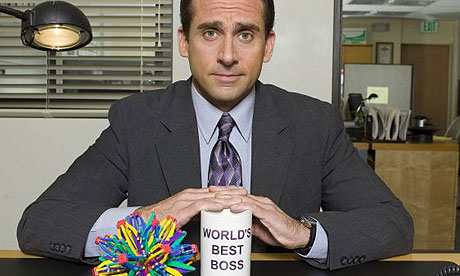In a New York hotel room last week, I experienced the curious déjà vu that American network television currently offers British visitors. In Thursday night peak-time, NBC's native version of The Office is followed by ABC's translation of Life On Mars. But the phenomenon is not uncomplicatedly patriotic: pride in our shows attracting transfer interest is interspersed with bemusement at familiar lines or scenes in what seem like clumsy disguise.
In the case of The Office, the US cousin has grown so far from its roots, having reached more than 80 episodes compared to the British 13, that only trace elements remain: crass boss, militarist underling, receptionist's puppyish love. Just three weeks into the US run, the Life On Mars template remains vivid, although with historical substitutions (Vietnam for Belfast) and, reflecting greater gender sensitivities, less vicious sexism from the character now known as Lieutenant Gene Hunt.
The most obvious problem for both exports is that The Office and Life On Mars, in common with most British hits, are driven by an interest in class: David Brent feels inferior to his head-office bosses; Sam Tyler is better educated than the thuggish 70s detectives. As is common in British comedies, the biggest distinguishing mark is accent, a far less instant indicator in American life. So, in the screenplays for the States, Tyler merely relies on the smugness of coming from a more sophisticated culture, while Michael Scott, America's Brent, is more psychologically than socially inadequate.
With an adaptation of the BBC1 sit-com The Worst Week of My Life running on another US channel, the format export business continues to expand, but the theory feels more attractive than the practice. Most of us don't know a second language well enough to notice failures of translation, but these American remakes allow us to understand what it might be like for a bilingual French or English reader to encounter Madame Bovary or Pride and Prejudice in the other tongue.

